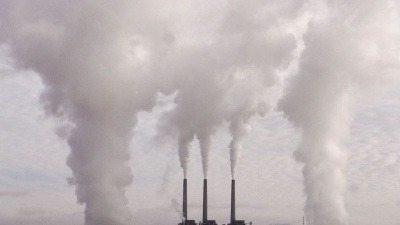Incineration proposals incompatible with UK net-zero and recycling targets
In a report released last week (16 July), XR Zero Waste has called for urgent government action to prevent the realisation of 50 new incinerators in the UK.
Government planning approval has already been obtained for the proposed plants, 17 of which are set to become operational by 2025.
 In the report, XR Zero Waste highlighted the incompatibilities between these proposals and the UK Government’s climate and recycling goals.
In the report, XR Zero Waste highlighted the incompatibilities between these proposals and the UK Government’s climate and recycling goals.
If built, the 50 new plants would cause incineration CO2 emissions to triple, from 5.5 to 15 million tonnes.
As a result, total waste sector emissions would increase to 28 million tonnes by 2035, instead of dropping below 16 million tonnes, as required by the Climate Change Committee’s net-zero pathway for the sector.
Environment Minister Rebecca Pow, however, recently claimed that the Government's waste strategy is designed so that ‘ultimately, there will be less [waste] going to incineration’.
To enable the UK to reach its net-zero target, the Government would have to cut incineration emissions in half by 2035.
This can only be achieved through the implementation of measures that both prevent incineration expansion and require the removal of most plastics from incineration waste streams, according to the report.
In particular, the report highlighted the dissonance between waste incineration expansion and UK recycling targets.
With the 50 new incinerators operating at full capacity, only 34 per cent of the total waste generated in England would be available for recycling in 2035, not the 65 per cent mandated by UK law.
Local authorities that sign incineration contracts, many of which cover 25 years, are legally obligated to keep incinerators running at capacity. In practice, this can result in recyclables being sent to incineration to avoid financial penalties.
According to XR Zero Waste’s analysis, the 50 new incinerators would be able to burn more than twice as much waste as the country would produce by 2035.
This discrepancy, which the report set at 15 million tonnes, could hinder recycling progress or increase the likelihood of stranded incineration assets.
The report also pointed out that incineration prevents green job growth, noting that reuse and repair alone generate 15 times more jobs than the waste disposal sector.
Moreover, the planned expansion would put recycling revenue at risk, causing the UK economy to forego £1.6 billion per year from recycling.
The report outlined a series of urgent recommendations to align waste incineration with recycling and net-zero targets.
Measures such as the introduction of an energy from waste (EfW) incineration tax, the restriction of EfW incinerators to burning only low-carbon feedstock, reassessment of existing EfW planning permissions, and the introduction of a carbon charge, the report says, could reduce the environmental impact of waste incineration.
Dr Rembrandt Koppelaar, lead author of the report, said: “If the government allows these 50 incinerators to come on stream, incineration capacity in England will double within the decade, from 14 to 27 million tonnes, and associated CO2 emissions will nearly triple.”
“To meet its net-zero target by 2050 and its 65 per cent recycling target by 2035, the UK government urgently needs to introduce appropriate measures to stop incineration expansion and restrict the burning of plastics.”
Geraint Davies MP, chair of the All-Party Parliamentary Group on Air Pollution, supported XR Zero Waste’s analysis, saying: “As a growing body of scientific evidence is demonstrating, the incineration of plastics contributes both greenhouse gases to climate change, and a cocktail of pollutants that are toxic to human health.
“Incineration is big business and is encouraged by the lack of taxation from a government committed to double the number of incinerators by 2030.
“We need a fiscal framework that promotes sustainability. A tax on incineration would add value to recycling plastic and encourage more recyclable plastic alongside biodegradable alternatives.
“The XR Zero Waste analysis shows that we need an incineration tax, that we should stop burning plastics, and that we must stop the construction of incinerators we can’t defend if we're serious about climate change and public health.”







